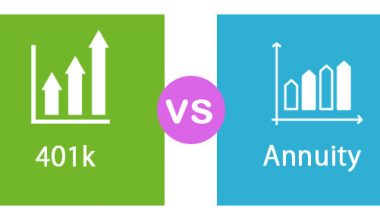If you have a pension plan, such as a 401(k) or an IRA, and want to access the assets, you typically have three options: monthly installments, a lump sum payment, or an annuity. The strategy you use should take into account your short-term and long-term savings goals to ensure that your financial condition is not jeopardized. This review will look at how lump sum payments function. We’ll also look at the social security death lump sum payment, the tax treatment, and the eligibility requirements.
What Is a Lump Sum Payment?
A lump-sum payment is a significant sum of payment that is paid all at once rather than in installments. When dealing with a loan, it is sometimes referred to as “bullet repayment.” They are sometimes connected with pension plans and other retirement vehicles, such as 401(k) accounts, in which retirees take a smaller lump-sum payment up front rather than a bigger sum paid out over time. These are frequently paid out in the case of debentures.
Understanding a Lump Sum Payment
Lump-sum payments are sometimes used to represent a large payment made to acquire a set of products, such as a corporation paying one sum for another company’s inventory. Lottery winners will also often have the option of receiving a lump sum payment rather than yearly installments.
Accepting lump-sum payments rather than an annuity has advantages and disadvantages. The best option is determined by the value of the lump sum vs the payments as well as one’s financial objectives. Annuities can offer some financial security. However, a retiree in bad health may benefit more from a lump sum payment if they believe they will not live long enough to receive the entire benefit. You can even pass on the funds to your heirs if you receive an upfront payment.
Furthermore, depending on the amount, an upfront payment may allow you to acquire a home, a yacht, or another major item that you would not be able to afford with annuities. Similarly, you can invest the money and potentially earn a better rate of return than the annual payments’ effective rate of return. Alternatively, you could lose money on your first investment.
Annuity Payments vs. Lump Sums
Assume you win $10 million in the lottery to demonstrate how lump-sum and annuity payments work. If you took the entire winnings as a lump sum payment, you would be subject to income tax on the entire amount in that year. Hence, you would be at the highest tax rate.
If you pick the annuity option, your payments may be spread out over several decades. For example, instead of earning $10 million in one year, your annuity payment could be $300,000 per year. Although the $300,000 would be subject to income tax, you’ll certainly be out of the highest state tax brackets. You would also avoid the highest federal income tax bracket of 37% for singles earning more than $523,600 in 2021 and $539,900 in 2022, or $628,300 for married couples filing jointly earning more than $523,600 in 2021 and $647,850 in 2022. 12
The magnitude of the lottery win, current income tax rates, predicted income tax rates, state of residency when you win, the state in which you will live following the win, and investment returns all factor into such tax considerations. However, if you can get an annual return of more than 3% to 4%, the lump sum option with a 30-year annuity usually makes more sense.
Another significant benefit of accepting the money gradually is that it offers victors a “do-over” card. Winners have a higher chance of managing their money wisely if they receive a check every year.
Should You Take a Lump Sum Payment?
It is prudent to choose the payment plan that best fits your financial condition after retirement. An annuity may be a good alternative if you want a continuous stream of income throughout retirement.
However, if you want to receive the rest of your pension plan in one lump sum payment, you should consider making a lump sum payment.
What is a Social Security Lump Sum Death Payment?
The U.S. Social Security Administration manages and funds the Social Security Administration’s Lump Sum Death Payment. If a surviving spouse or kid meets specific criteria, they may be eligible for a special lump-sum death payment of $255.
What is the Procedure For Receiving a Lump Sum Payment From Social Security?
The Social Security Administration (SSA) manages the retirement benefits program. They allow eligible individuals to raise their monthly entitlement by deferring benefits until they reach full retirement age. Your monthly payment will rise until you reach the age of 70, at which point your entitlement will remain unchanged.
If you did not commence your Social Security claim at your prescribed retirement age, you can still request a back-payment of up to six months of your entire benefit.
For example, if your full retirement age was 66 and you did not initially claim Social Security, your eventual monthly benefit would grow. If you later decide that you wish to start making payments, you can choose to receive up to six months’ worth of back payments in a lump sum.
If your full retirement age benefit was $2,000 per month, you may get a lump sum payment of up to $12,000 if you had deferred your Social Security benefits for at least six months. Of course, doing so would diminish your delayed retirement credits and hence affect the size of your future payments.
How To Calculate Lump Sum Payment
You must use the following mathematical formula:
PV(1+r) n = FV
- FV stands for Future Value.
- PV stands for Present Value.
- r = interest rate
- n = number of years
For example, suppose you placed a lump sum of $100,000 in a mutual fund program for a period of 20 years. You have a 10% projected rate of return on your investment.
Who is Qualified For a Social Security Lump Sum Death Payment?
To be eligible for this payment, the surviving spouse must have been residing in the same household as the worker at the time of death. If they were living apart, the surviving spouse can still get the lump sum if the spouse completed one of the following requirements during the month the worker died:
- On the worker’s record, he was already receiving benefits.
- When the worker died, they became entitled to benefits.
If there is no eligible surviving spouse, the lump sum can be awarded to the worker’s child (or children) if the child fulfills one of the following requirements during the month the worker died:
- On the worker’s record, he was already receiving benefits.
- When the worker died, they became entitled to benefits.
Take the SSA’s Benefit Eligibility Screening Tool to see if you are eligible for any of the Social Security benefit programs.
Following completion of the eligibility screening questionnaire, you will be given a list of benefits for which you may be eligible. Before you go to the application site, print this page for your records.
Why a Lump Sum May Not Be Appropriate For You
Despite the fact that these lump sums are substantial, many people do not request them. When lump sums aren’t available, most people prefer to accept their benefits sooner. Even if you wait, you must give up something in exchange.
The Social Security Administration treats people who request lump sum payments as if they filed for Social Security in the month preceding the first payment included in the lump sum. If you turn 67 1/2 and request six months of benefits in a lump sum, they will calculate the benefits as if you had claimed at age 67, not 67 1/2. That would offer you six times your current monthly payment all at once.
However, if you applied for regular benefits at age 67 1/2, your payment would be increased by 4% due to delayed retirement credits. So, given the base $1,500 monthly amount, the trade-off for receiving that $9,000 lump sum is that you will not receive a larger $1,560 Social Security check – both now and in the future.
What is best for you?
There is no correct or incorrect answer that applies to everyone. For single retirees who do not anticipate living long enough for an extra $60 per month in benefits to make a significant difference. Having $9,000 upfront may be well worth it. Giving up the extra monthly money isn’t worth a little lump sum right now for others, particularly those with spouses who will rely on family benefits decided by the working spouse’s claiming choice.
The one thing to remember is that lump-sum social security should not be viewed as a free solution to your financial problems. It has a price that you must be willing to pay before you take the money and run.
What is the maximum amount of tax-free lump sum?
25%
Each lump sum will be tax-free up to 25% of the time. You may not have to accept your cash lump sum entirely at once. It depends on the type of pension you have. You could take it in smaller chunks; up to 25% of each withdrawal is tax-free, with the remainder taxed at your regular income tax rate.
How will a lump-sum Social Security payment affect my tax returns?
While the idea of a lump sum payment is appealing, you should consider the implications for your tax situation. If your combined income exceeds $25,000, up to 50% of your Social Security benefits are taxed, and up to 85% if it exceeds $34,000. To be clear, these data refer to the fraction of payments that are subject to federal income tax, not the rate at which they will be taxed.
Ordering a lump-sum social security payment may push you into a higher tax bracket. So, you’ll be forced to pay tax on a much larger portion of your income. If the payment raises your annual income above $85,000, your Medicare premiums will rise as well.
What effect will a lump sum have on my benefits?
If you receive or expect to receive means-tested benefits, the amount you receive is determined by your savings and income. A lump sum payment, such as a redundancy pay-out, a drawdown from your pension, or an inheritance, may reduce the number of benefits you are eligible for.
Which Is Preferable, Regular Payments or Lump Sums?
The lump-sum option is unquestionably the best choice in most situations. A lump-sum payout gives you more influence over how your money is invested and what happens to it after you pass away than a monthly payment does. If so, your best chance is to choose the lump-sum option.
Do You Allow Lump Sum Withdrawals?
You are permitted to take a lump sum withdrawal of your super if you have satisfied any of the release conditions (or several lump sums). You can also choose to withdraw money from your super account in the form of a lump sum, an income stream, or a combination of the two.
What Does a Lump Sum Cash Out Mean?
Employers are increasingly offering their workers the option of receiving all or part of their pension as a one-time payment. This alternative is referred to as a lump-sum payout. The management of the funds becomes your duty if you opt for a lump-sum payment as opposed to regular installments from your company.
Is the Lump Sum Taxable?
Even if you intend to roll the taxable amount over within 60 days, a mandatory 20% income tax withholding is required on the majority of taxable distributions from employer retirement plans that are paid directly to you in a lump sum. Be aware that depending on your tax position, the default withholding rate may be insufficient.
Conclusion
Lump sum payments transfer account balances in a single transaction rather than in installments. These payments allow you to receive huge quantities of money all at once. However, you will be eligible to take your earnings from pension schemes after you reach the age of 59 1/2. As a result, it is prudent to select a payment arrangement that matches the post-employment lifestyle you desire.
Lump Sum Payment FAQs
What is an example of lump sum?
A corporation might pay $50,000 for the inventory and equipment of failing small manufacturing. The $50,000 payment is made in one lump sum.
How is a lump sum payment taxed?
Even if you expect to roll over the taxable amount within 60 days, most taxable distributions received directly to you in a lump sum from employer retirement plans are subject to mandatory income tax withholding of 20%.
Can I take all my pension at 55?
Yes, if you have a defined contribution pension, you will have accumulated a pot of money that you can withdraw from when you reach the age of 55. This offers the option of receiving the entire amount in one lump sum.
Related Articles






